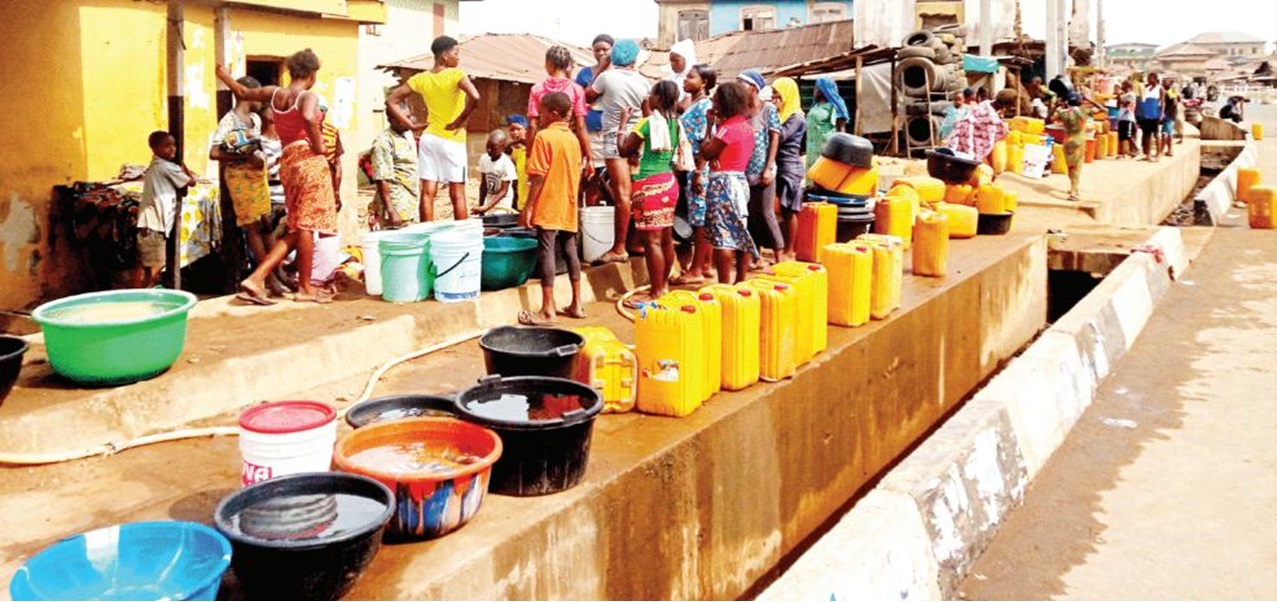By Alusine Fullah
Safe drinking water and sanitation are human rights. Without access to these services, a life of dignity, stability and good health is virtually impossible. Water, when managed sustainably and equitably, it can be a source of peace and prosperity. It is also the literal lifeblood of agriculture, the major socio-economic driver for billions of people.
Water scarcity in Sierra Leone is a dire situation, and is only getting worse. As Africa’s population continues to grow and climate change continues to rob the continent of the finite resource, it is predicted that by 2025, close to 5 million Sierra Leoneans will be facing water scarcity, and up to 4 to 5 million will be living in water-stressed areas.
It’s not an exaggeration to say that almost every Sierra Leonean is impacted by water scarcity, both directly and indirectly. Those directly affected have no immediate access to water and have to travel long distances to provide water for their households and businesses. Water access to some citizens is not as easy as opening a tap or flushing the toilet.
Water scarcity is also a massive driver of conflict and stressed areas have increasingly borne witness to violence over the resource. Communities surrounding Fourah Bay College, Moyeaba and Calaba Town for example have been exposed to violence between those in need of water and those who are unwilling to compromise. We are currently facing a water crisis that can be seen and felt in a multitude of ways.
Let us state it clearly: this situation could bring about a systemic crisis in our societies. If humanity goes thirsty, fundamental questions on education, health and sustainable development will be side lined, eclipsed by the daily struggle for water.
This is the crucial dilemma raised by the 2024 United Nations World Water Development Report. The report brings new data to bear on this important debate, underlining – for example – that 50% of jobs in high-income countries depend on water, a figure that increases to 80% in the lowest-income countries.
However, faced with these severe hydric challenges, the report also makes proposals – to reinforce water education, step up data collection to guide public policies, and increase private investment to ensure more sustainable management of water resources. For, as our report underlines, universal access to water for drinking, sanitation and hygiene will require an annual investment of around US $114 billion until 2030. This is indeed a considerable sum – but the cost of inaction will be significantly higher.
The report puts international cooperation at the heart of proposed solutions – in line with its theme, “Water for Prosperity and Peace”.
Over the past several decades, considerable media attention has been given to the relationship between water and conflict (with peace generally understood as the absence of conflict), and more specifically, conflicts over water. While tensions and disagreements over water do occur, especially at local levels, such disputes are commonly resolved through dialogue, negotiation and cooperation, provided the appropriate legal frameworks are in place, and the various governing institutions have the willingness and capacity to offer fair and equitable guidance.













